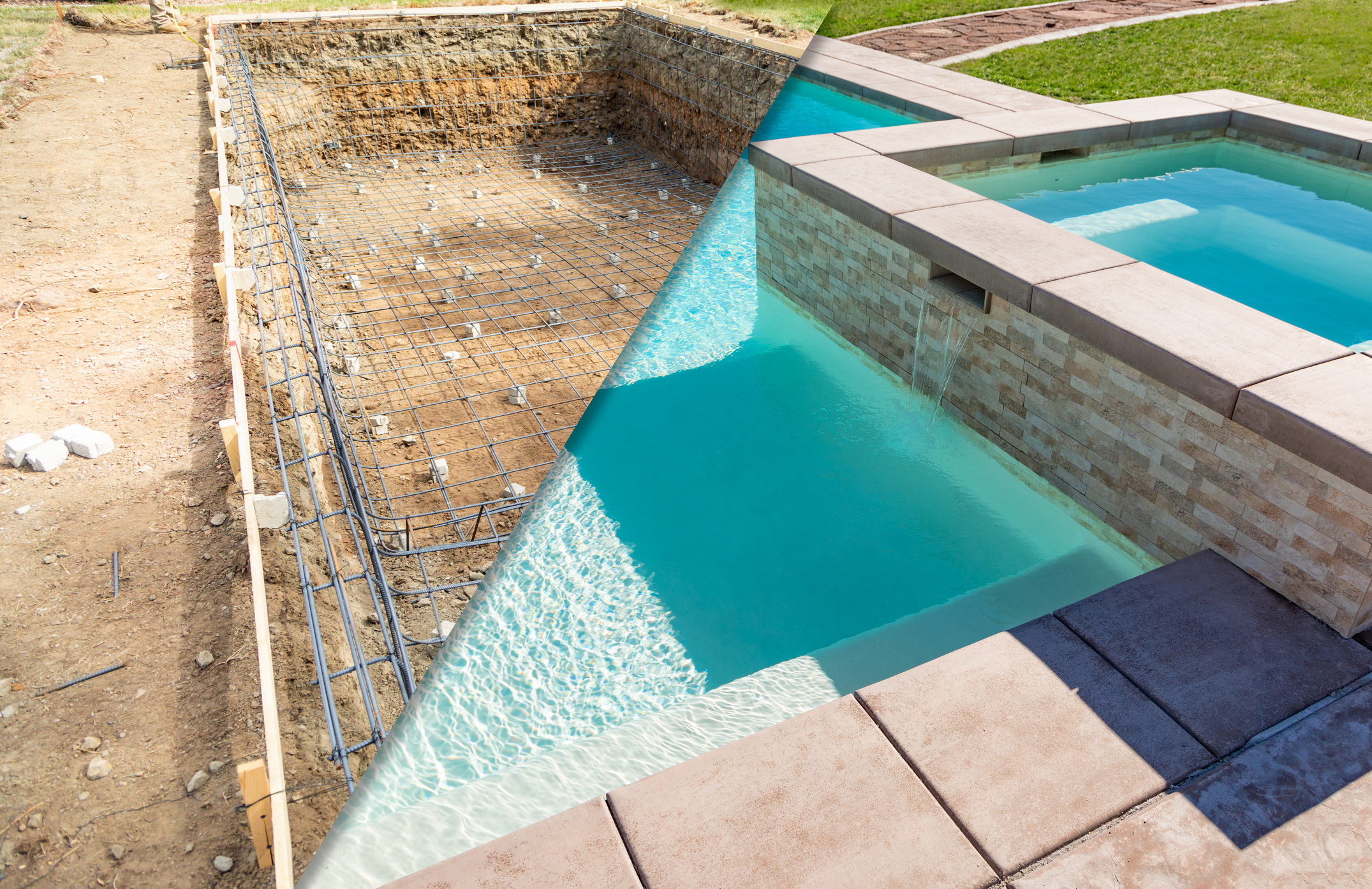We Need to Talk about Pool Construction
It’s time we had a serious conversation about pool construction. We’ve been focused for some time here at the WaterSpace blog on the elements and principles of pool design because that’s the place where you need to start. We started there because design is a topic too many new pool buyers—as well as cookie-cutter pool builders—skip over, and that’s a shame. If you haven’t yet visited our pool design series, take time to do so before you start your own pool project. You’ll come away with a clearer understanding of good design and some useful tools for getting the most value and enjoyment from your new pool investment.
The next step beyond design in your journey as a new pool buyer is all about pool construction, concrete chemistry, contractor competence, and how to spot unskilled or dishonest construction practices. Over my years in the pool business, I’ve seen too many swimming pools in need of costly concrete repairs—even pools beyond repair. You don’t want to become one of those unhappy homeowners facing costly problems because the construction didn’t meet the pool industry’s highest standards. Many of those problems start with the concrete, and so concrete will be the first topic we focus on in this series.

Budd’s Pools only uses shotcrete—not gunite—for its custom pools.
Why an in-ground, steel reinforced concrete pool is your best value
Strength is the reason you want an in-ground pool built with steel reinforced concrete. You pay more now for its strength, durability, and longevity, and you enjoy your pool more for a longer time. And if you ever decide to sell your home and move, you’ve got an asset in your yard that adds value, rather than a hole in the ground that’s a liability.
However, to realize that value, you want to find a trustworthy builder whose concrete work follows all the procedures, based on the science, and meets or exceeds the pool industry’s highest standards. If you aren’t armed with an understanding of pool construction, your top criteria may default to the lowest bid. That’s a risky path to take when there’s so many things that can go wrong in pool construction.
Let’s dig deeper into how good pools get built
So, roll up your sleeves, get prepared to get your hands dirty, and dig deeper with me into how in-ground pools are supposed to be built. We’ll start the series with concrete construction. This is the material that forms the vessel that holds your pool water. Done right, concrete makes the strongest pool structure, the one that will last for many years to come.
In the next article we will start a journey through the construction of a custom shotcrete pool. We’ll show you why Budd’s Pools only uses shotcrete—not gunite—for its custom pools. We’ll talk about concrete construction standards and why Budd’s Pools are built to exceed pool industry standards. I promise you won’t find this story as dry as concrete. In fact, you’ll learn—among other things—why keeping concrete wet enough during the critical 30-day drying process is the secret to make pools strong and long lasting.

